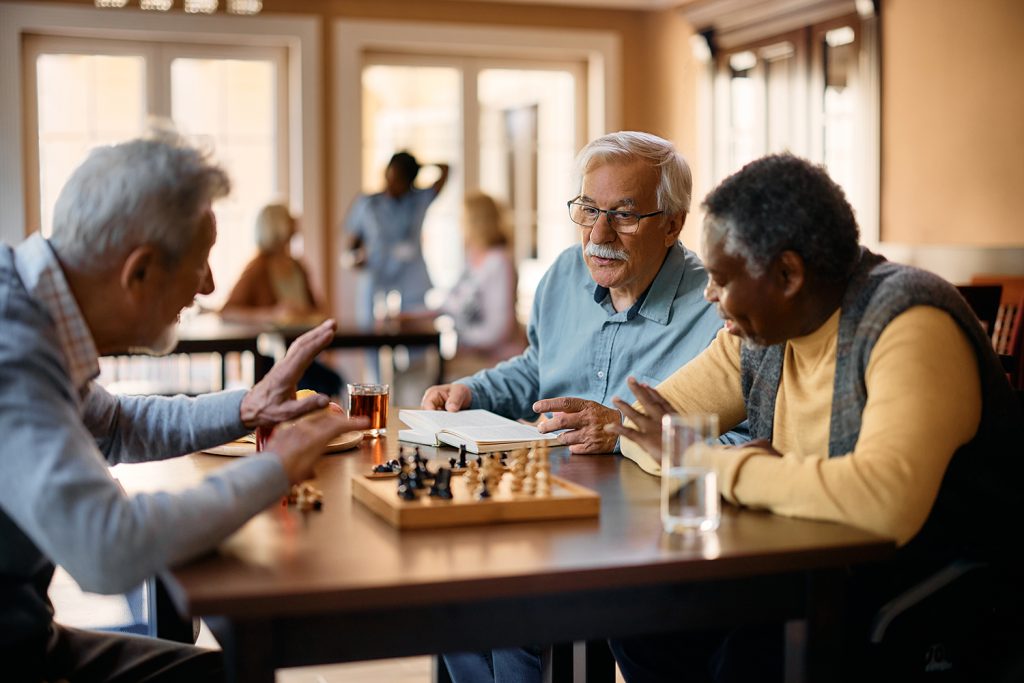Boost Memory with Association Games Effective Brain Training

The Importance of Memory in Daily Life
Memory plays a foundational role in our daily lives, permeating every aspect from learning to social interactions. The efficiency of our memory significantly influences our ability to make well-informed decisions, effectively communicate, and engage in complex tasks. However, as we age, our ability to recall information often starts to wane, underscoring the need for robust strategies to boost memory. Engaging in mental exercises, particularly through association games, offers a compelling solution to enhance our cognitive abilities.
Understanding Association Games
Association games are rooted in the brain’s inherent capability to connect disparate ideas or concepts. This ability to forge links is not only vital for memory retention but also crucial for problem-solving and creative thinking. Here are some tangible benefits of incorporating these games into your routine:
- Improved recall: Games like “Who Am I?” or “20 Questions” challenge participants to remember specific traits or facts, thereby strengthening their ability to remember names, faces, and key details.
- Enhanced creativity: As players are encouraged to think outside the box, they learn to make unusual connections. This can lead to innovative ideas and solutions in various aspects of life.
- Increased focus: Engaging in mentally stimulating games sharpens concentration. For example, traditional games such as “Memory” with cards develope attention to detail as players try to recall the location of pairs.
Local Perspectives on Memory Games
In the vibrant cultural context of Nigeria, where communal gatherings and storytelling are highly valued, association games have a natural place in social interactions. These games can be seamlessly integrated into family activities or community events, serving as both entertainment and a means of mental enhancement. Traditional games such as “Ayo” or “Ludu” not only foster bonds among participants but also sharpen cognitive skills while being deeply rooted in the local culture.
Moreover, the appeal of association games extends beyond mere entertainment. They serve as interactive platforms for learning, providing opportunities to engage younger generations in a way that resonates with their cultural heritage. For instance, storytelling woven through games can evoke strong memories and cultural values, contributing to a vibrant recollection of community history.

A Call to Action
This article aims to delve into various association games and the profound effects they have on memory and brain training. Now is the time to explore these engaging activities that promise not just to enhance your cognitive abilities but also to enrich your social connections. Prepare to embark on a journey toward sharper memory skills and improved quality of life. By making association games a staple in your daily routine, you could unlock not only the full potential of your mind but also that of your community.
SEE ALSO: Click here to read another article
Unlocking the Power of Memory through Association Games
Association games have gained recognition for their ability to serve as effective brain training tools, providing numerous advantages in cognitive development. By engaging with these games, individuals can strengthen their memory through the strategic connection of concepts, a technique that dates back to ancient learning methods. Such games are not only entertaining but also an enriching way to enhance mental agility.
To truly appreciate the impact of association games on memory, it’s essential to recognize how the brain processes information. When we create links between different ideas or images, we enhance our ability to recall those elements later. This is particularly important in today’s fast-paced world, where forgetting names, dates, or vital details can impede both personal and professional interactions. In Nigeria, where social networking plays an essential role, strengthening memory through engaging activities becomes even more pertinent.
Types of Association Games to Consider
Incorporating association games into your daily routine can be both fun and rewarding. Here are some effective types of games to explore:
- Word Association Games: These games require players to connect words based on common themes or categories. For example, saying “Nigeria” may prompt responses like “Lagos,” “culture,” or “tradition,” reinforcing the mental pathways associated with those concepts.
- Mnemonic Devices: While not a game in the traditional sense, mnemonics involve creating acronyms or phrases to help remember information. For instance, turning a long list of grocery items into a catchy phrase can aid in recall.
- Visual Association Games: Games that encourage participants to create visual links, such as drawing or matching images, can enhance memory retention. This technique taps into the brain’s natural affinity for visual learning.
- Memory Cards: Playing classic memory card games, where participants must find pairs hidden among a set of cards, trains the brain to focus and improve recall skills. These can easily be tailored to reflect local culture through images or symbols familiar to Nigerian players.
It’s fascinating to observe how these games weave into the fabric of communal and familial interactions in Nigeria. As people gather to engage in these activities, they not only sharpen their minds but also strengthen the bonds that tie them together. Through laughter and competition, relationships are nurtured while cognitive skills are enhanced.
Why Association Games Are a Game Changer
Adding association games to your cognitive toolkit can yield significant benefits beyond mere memory improvement. The social interactions and laughter shared during gameplay contribute to emotional well-being and stress reduction, further enhancing overall cognitive performance. In a country like Nigeria, where community and connection are paramount, these games offer dual advantages: improving memory and fostering social ties.
As we delve deeper into the exploration of memory and association games, it’s clear that these activities not only promise to boost memory but also create lasting connections that enrich both individual lives and the community at large. As we move forward, let’s uncover more about the specific games available and how to effectively integrate them into our everyday routines, ultimately unlocking the full potential of our minds.
| Advantages | Details |
|---|---|
| Enhanced recall ability | Association games improve memory by linking new information to familiar concepts, making it easier to retrieve. |
| Increased cognitive flexibility | Engaging with association games promotes mental adaptability, allowing individuals to switch between ideas effectively. |
| Reduced cognitive decline | Regular mental exercise through these games can stave off memory loss and cognitive decline as one ages. |
Taking part in association games not only fuels mental agility but also fosters a deeper understanding of how memory works. By presenting information in a structured yet engaging way, these games train the brain to make connections effectively, which is crucial for learning and retention. As neuroplasticity—the brain’s ability to reorganize itself—plays a vital role in memory formation, incorporating such interactive methods into daily routines could lead to significant improvements over time. Exploring further, engaging in a variety of formats, from verbal to visual puzzles, can enrich this training experience, ultimately leading to a sharper, more active mind.
CHECK OUT: Click here to explore more
Increasing Cognitive Flexibility with Association Games
As individuals explore the vast landscape of association games, they often uncover surprising benefits that extend far beyond improved memory. One such advantage is cognitive flexibility, the brain’s ability to adapt and switch between thinking about different concepts. This skill is indispensable in a world filled with constant changes and demands. For the Nigerian workforce, enhancing cognitive flexibility can lead to better problem-solving and collaboration, particularly in diverse teams where innovative thinking is critical.
Incorporating Cultural Elements into Gameplay
In Nigeria, the integration of cultural elements into association games amplifies their effectiveness. By using familiar references, such as local foods, traditions, or historical figures, players can make connections that are personally resonant, enhancing their memory retention. For example, a word association game that includes terms like “jollof rice,” “Nollywood,” or “calabash” encourages not only recall but also deeper engagement with the cultural heritage. This relationship between memory and cultural context can motivate players to engage more fully, providing a richer experience.
Moreover, using themes that resonate with local festivals or events can activate memories linked to joyful communal experiences. This interplay amplifies the excitement around gameplay, creating an interactive environment where learning becomes a natural part of social bonding.
The Science Behind Association Games and Memory Enhancement
Research into the science of memory reveals that the act of associating new information with existing knowledge strengthens neural pathways. A study published by Cognitive Psychology emphasizes that engaging in games that require strategic association increases the brain’s plasticity, which is crucial for learning and memory retention. Players who regularly engage with these games may find improvements in their ability to grasp new concepts quickly, a skill particularly valuable in educational settings.
Evidence points to specific games that elevate cognitive functioning. For instance, the classic game “20 Questions” challenges participants to deduce an object through a series of creative questioning, stimulating both memory and deductive reasoning. Similarly, “Story Cubes,” where players create narratives from rolled dice, encourages imaginative thinking and strengthens semantic networks, enhancing memory retention effectively.
Digital Platforms for Association Games
In today’s digital age, technology provides a wealth of opportunities to engage with association games on various platforms. Mobile applications and online games cater to diverse audiences, offering customized experiences based on individual skill levels. Some popular apps focus on word associations, puzzle solving, and memory challenges that can be played solo or with friends. These digital formats not only provide accessibility but also promote friendly competition, which can further motivate players to improve their cognitive skills. For example, apps like “Elevate” and “Lumosity” use gamification strategies to help users develop memory and attention span through engaging challenges tailored to their needs.
By making use of these modern tools, individuals can effectively incorporate association games into their daily routines, allowing for continual improvement and mental stimulation. Engaging with these games in both physical and digital forms emphasizes the versatility of learning and memory enhancement techniques available to everyone.
The implications of boosting memory through association games extend well beyond personal achievement. As Nigerians embrace these cognitive training opportunities, the collective enhancement of memory skills contributes to informed communities, fostering collaboration and innovation across various sectors. As society continues to evolve, the need for effective brain training through association games will only grow, shaping the minds of future generations.
CHECK OUT: Click here to explore more
Conclusion: Enhancing Memory Through Innovative Gameplay
In a rapidly evolving world, the need for effective cognitive training has never been more crucial. Association games present a captivating and beneficial avenue for individuals seeking to boost their memory and enhance cognitive skills. By leveraging familiar cultural elements and integrating them into gameplay, Nigerians can experience not only improved recall but also a deeper connection with their rich heritage.
Research highlights the role of these games in promoting neural plasticity, essentially allowing the brain to adapt and grow through dynamic learning experiences. This adaptability is vital in educational settings, workplaces, and daily life, where the ability to process and utilize information is paramount. Games like “20 Questions” and “Story Cubes” challenge players to think creatively, fostering an environment ripe for mental growth.
With the advent of digital platforms, association games have become more accessible than ever. Mobile apps and online games offer a personalized experience, encouraging friendly competition and social interaction, which can significantly enhance motivation and engagement. By incorporating these games into daily routines, individuals can cultivate a habit of mental exercise that pays dividends over time.
The implications of integrating association games into everyday life extend beyond personal development; they contribute to a more informed and collaborative community. As Nigeria continues to navigate its growth and challenges, embracing these effective brain training tools can lead to a more innovative and resilient workforce. As we delve deeper into the world of cognitive enhancement, the benefits of association games will undoubtedly become a cornerstone of lifelong learning and development.


